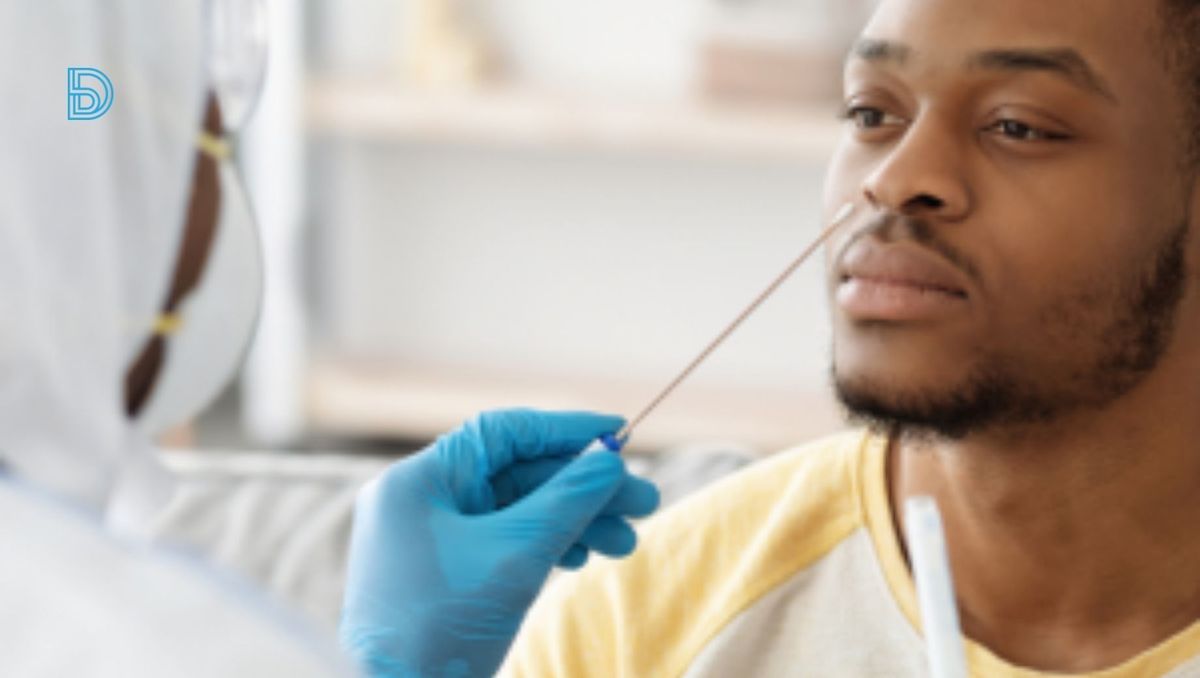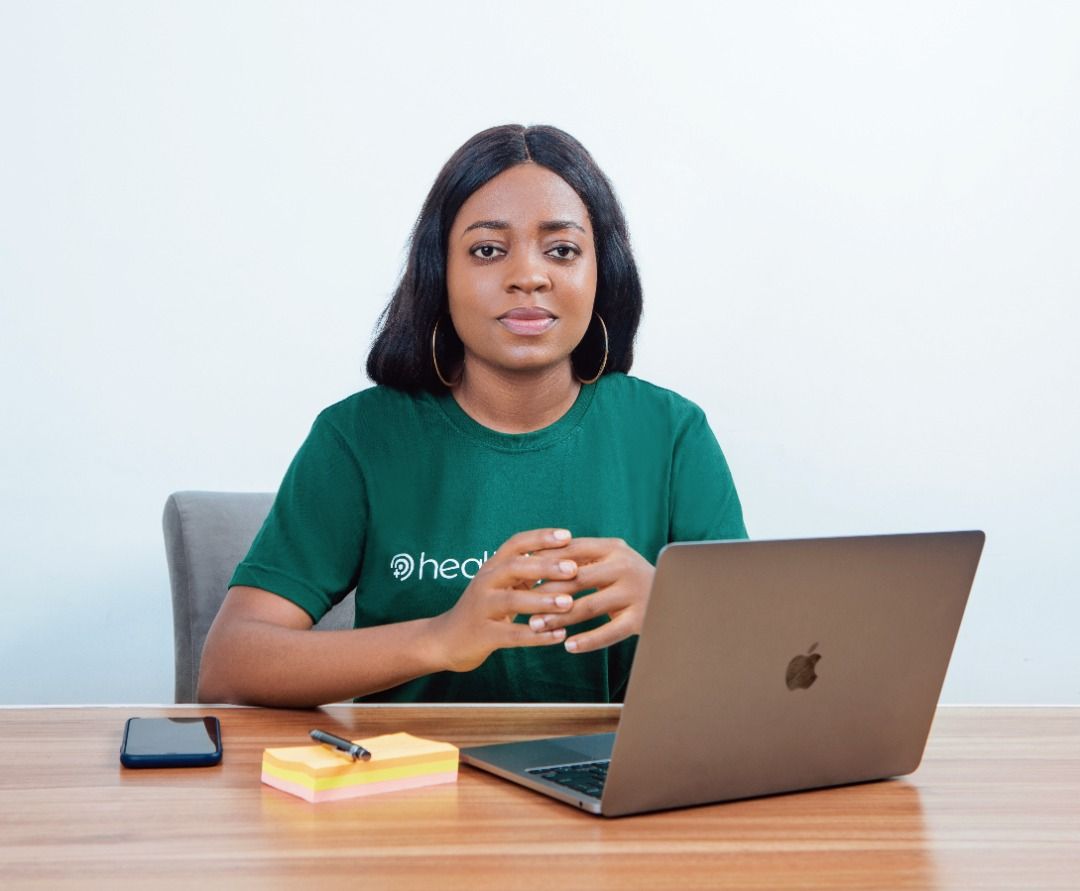Inside Healthtracka’s efforts to provide prompt COVID-19 testing in Nigeria
In June 2021, Healthtracka started providing prompt COVID-19 testing for Nigerians to make up for the international travel requirement. How far has this gone?

How has HealthTracka enabled COVID-19 testing in Nigeria?
COVID-19 tests in Nigeria’s public hospitals are free. But you won't know your fate until after a week or more sometimes. This defeats the purpose of COVID-19 testing and inhibits public health measures to combat the spread of the pandemic. Healthtracka is changing this by providing home lab testing for Nigerians.
Healthtracka is a digital health platform founded in May 2021 by Ifeoluwa Dare-Johnson (CEO) and Victor Amusan (Head of Product).
“We launched in the middle of the pandemic with the goal to make lab testing easy and affordable to Africans and also reduce the risks. So we added covid testing to our services in June 2021,” Ifeoluwa said.
She added that “people often want to know their covid-19 status swiftly, so we came up with a digital result system that enabled us to provide test results within 24 hours — to enable the users to make decisions that are dependent on the test.”
The majority of Nigeria’s population live in poverty; Nigeria had a poverty headcount rate of 40.1% by the end of 2020. The poverty rate in the urban areas is lower than that in the rural areas.
The poverty headcount rate in the urban area was 18.0%, while in the rural area was 52.1% — medical services and infrastructure in these communities are limited or non-existent.
When people in rural communities are sick, the first and nearest health facility to them is the primary health centre (PHC). Unfortunately, these facilities are dilapidated and often times understaffed.
Although Nigeria has a robust national policy for universal health coverage, no significant effort has been made since 2005, when the 58th World Health Assembly issued the resolution encouraging countries to transition to universal health coverage (UHC).
Expectedly, Nigeria has the lowest government health financing and the highest out-of-pocket cost in Africa. The goal of the UHC is to provide high-quality health care to everyone, regardless of socioeconomic status.
Ifeoluwa’s inspiration to start Healthtracka can be traced to a tragic experience that led to the death of her dad.
“At the point of my father’s death [due to the lack of routine medical check], I knew I needed to do something about this none or late diagnosis of health issues in Africa. Most people still wait for an emergency before going in for any health tests. For some, it feels like a lot of stress to take a pause in their lives to go seek health testing,” Ifeoluwa said.
The Healthtracka Story 👇
— Healthtracka (@healthtracka) August 11, 2021
3 months ago, we launched Healthtracka 1.0. Our mission is to make health testing accessible to all Africans.
Check us out at https://t.co/goppXakdty, book your tests, share with your friends. May we all live long and healthy lives. pic.twitter.com/K56RWsC7le
As of 1st March 2022, over 254,000 COVID-19 cases have been confirmed and at least 3,000 deaths have been recorded in Nigeria. Healthtracka is one of the tech innovations that enabled easy access to healthcare during the pandemic.
Unlike public hospitals, Healthtracka does not own a lab. Instead, it has partnered with registered and certified labs in Lagos, Abuja and Ibadan, namely: SynLab, Vcare Lab, EHAs Clinics, Arrive Alive to provide COVID-19 testing for its users in their houses or preferred locations. One of these users is Gbenga Adeniyi.
Sometime last year, Gbenga Adebiyi and his brother were to make an international trip amidst the pandemic, he used the drive-in option to get his covid test to bypass the long queues and late results that characterise the public labs. “The process was seamless for me, I have used their services [Healthtracka] twice; and if I am travelling subsequently and I need a test, I will still use the platform,” he said.
You see this people? @healthtracka
— Ferdinand (@Burmese_Tyga_) February 2, 2022
They are amazing..... Beautiful service. Timely AF. Came home to collect samples for my PCR COVID test. Same day result. 200% recommend.
Do me right and get free promo. 😁🤷♂️
Within six months, the Techstars-backed startup delivered over 2,000 COVID-19 tests. For HealthTracka, testing gives them insights into the health of the user, hence they extend their services to provide free telemedicine consultation to patients who might need immediate medical services.
Aside from COVID-19 testing, the health-tech startup also offers other tests including DNA, pregnancy, hormonal and sexually transmitted diseases.
Also Read: Meet 25 African healthtech startups changing the narrative
HealthTracka’s primary health care plan.
According to a recent analysis by real estate firm Knight Frank, Nigeria would need 386,000 extra beds and $82 billion in health care real estate investment to reach the global average of 2.7 beds per thousand people.
Speaking on their rural outreach strategy, Ifeoluwa Dare-Johnson told Benjamindada that, “we do not intend to solve the problem for the middle-class only. With innovation, we intend to leverage community advocacy starting with Lagos [then to the other parts of Nigeria and Africa] — we will go to these communities to screen people at home for important tests like cancer.”
Ifeoluwa is a graduate of Biochemistry at the University of Ilorin. Prior to launching Healthtracka, she worked as an intern at the University College Hospital in Ibadan and as a data analyst at a healthcare firm in Lagos.
She also led marketing at SynLab, a European medical diagnostics company; all these experiences are coming into play and enabling the growth of Healthtracka.

What’s next for Healthtracka?
In 2022, while growing its customer base and exploring more partnerships, the Lagos-based health tech startup said it will expand to other cities in Nigeria, Ghana, Rwanda and Kenya.
Last year, Healthtracka announced a partnership with Fleri Inc., a United States-based insurtech startup enabling immigrants to provide healthcare for their loved ones back home.
According to Crunchbase, Healthtracka has raised an undisclosed amount of money over two rounds from three investors since its launch in 2021; Techstars Toronto and First Check Africa are among the investors.
In 2021, about 479 companies operating in the health sector received $379.6 million compared to the $90 million 180 companies received in 2020. Lauretta Hamza, a Communication Specialist at Ingressive believes that “if innovators in the health sector would just ride on the waves of certain drivers, more funds will be invested in the sector, thereby transforming Africa’s healthcare system.”
According to Hamza, “these market drivers include COVID-19 pandemic, population needs, consumer-centricity, data aggregation and analytics, and big tech involvement.”
Related: How to increase investment in Africa’s healthtech sector
All images were supplied by Healthtracka






